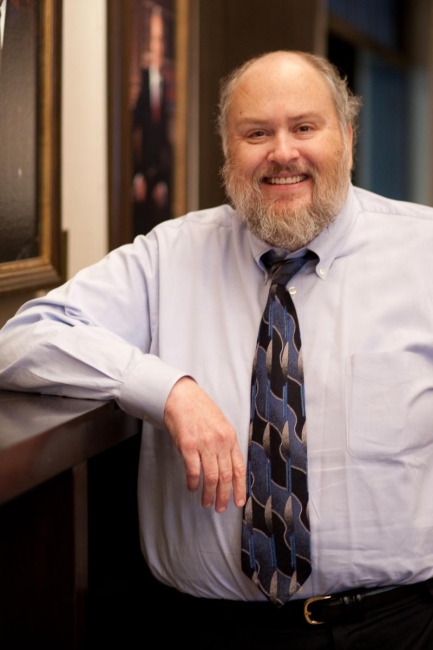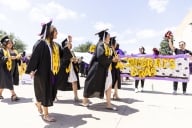You have /5 articles left.
Sign up for a free account or log in.

Michael A. Olivas
University of Houston Law Center
Michael A. Olivas, when explaining why he switched from preparing for the priesthood to becoming a lawyer, often said, “I was much better at afflicting the comfortable than I ever was at comforting the afflicted.” His death late last week at age 71 was a shock to everyone working at the intersection of higher education and the law, especially because many of us were shepherded there by Michael himself. While others can speak to his enormous contributions to laws supporting college access, like the top 10 percent plan in Texas; his advocacy for undocumented immigrants, including the Deferred Action for Childhood Arrivals program and the DREAM Act; and his contributions to law school leadership itself, I will focus on what I know best: Michael’s role as a mentor.
I was introduced to Michael in 2003 by Darryl Greer, my boss at the New Jersey Association of State Colleges and Universities. He had met Michael more than 25 years earlier when Michael—then a graduate student at Ohio State University—lobbied Darryl, then the assistant to the chancellor of the Ohio Board of Regents, on behalf of migrant farmworkers so they could establish residency and qualify for in-state tuition at Ohio’s public colleges and universities. (Michael tells the story here, starting at the 8:45 mark.) In 1982, Michael helped establish the Institute for Higher Education Law and Governance (IHELG) at the University of Houston’s Law Center, which hosted a biannual Higher Education Law Roundtable for new faculty members with J.D.s and Ph.D.s. I had neither a faculty position nor a doctorate at the time, but Michael liked my research proposal on copyright ownership of online courses at public institutions and invited me to the 2003 roundtable.
It was the beginning of a beautiful and an occasionally frightening friendship. Michael’s critiques of written work could be withering, but his praise—when offered—was effusive. He helped turn my paper from the roundtable into two IHELG monographs and then into two law review articles. He even cited one article in his indispensable casebook, The Law and Higher Education: Cases and Materials on Colleges in Court (“available in fine bookstores everywhere,” as Michael would say).
Michael had a way of closing his eyes tight, turning his head and appearing to drift off in thought. That was the look on his face—beamed in via Skype—at the start my dissertation defense. Michael was my outside reader and designated law expert, and oh my God, was he asleep? I should have known better: he fired off a question that got to the heart of my research and allowed me to talk for a while and ease into my presentation.
Good news on any front—getting my Ph.D., receiving a promotion, publishing an article—elicited a familiar one-word Olivas email response: “Yayyyyyyyyyy!”
When Michael received the University of Houston’s highest award for faculty excellence in 2001, he said, “I believe that nurturing young professionals, especially young professors, is the highest calling and the most rewarding vocation.” In my case, he phrased it a bit differently: “If I can help in any way on the job front, feel free to use my name, and I will lie my ass off, er, um, speak on your behalf.” Michael lied his ass off … er, um … served as a generous reference many times over the years.
Michael’s humor had a joyous borscht belt schtick. If a joke bombed during a presentation, he’d tap the microphone and ask, “Is this thing on?” Delivering the Clifford Scott Green Lecture at Temple University’s School of Law in 2015 on an injured foot, Michael said he was “raising cane” and proceeded to describe the rights of undocumented and “DACA-mented” students. For years, Michael made it known that he would like Jimmy Smits to play him in the movie about his life.
Michael’s network became my network. Too busy to accept an invitation to serve as pro bono counsel to the World Council of Comparative Education Societies, Michael recommended me, and the position has led to relationships with wonderful scholars across the globe. As his “man in New Jersey,” I was deputized—along with leaders from the American Civil Liberties Union and other legal scholars—to report updates on laws and regulations related to residency, in-state tuition and financial aid for the databases Michael maintained on states that allow and restrict access to higher education for undocumented students. The case of a U.S.-born student in New Jersey who was denied state-based financial aid because her parents were undocumented particularly flummoxed Michael.
Like many great mentors, Michael shared his personal life and dispensed family wisdom. He was a proud Mexican American with deep roots in New Mexico, which informed his work. While nearing retirement from his 38-year career at the University of Houston, where he held the William B. Bates Distinguished Chair of Law—and where he also served as interim president of the UH Downtown campus in 2016–17—he said he was perfecting the “adoring gaze” at his beloved wife, Tina. One of 10 children, Michael spoke often of his extended family. Front-row tickets to a Houston Rockets game made one of Michael’s nephews think that “Uncle Michael is the coolest uncle.”
The depth and breadth of Michael’s legal expertise set an example (an impossible one) to emulate. At the 2017 conference of the Association for the Study of Higher Education on the day he received the distinguished career award—a day you’d expect him to take a scholarly day off—Michael gave a detail-filled presentation on the issue of undocumented lawyers, the DACA program and occupational licensing. Trying to meet this Olivas-esque standard, I recently accepted an invitation from the Journal of College and University Law—where Michael was a longtime member of the editorial board—to write an article on the rights of stranded students, even though I am no expert on the issue. The Trump administration’s travel bans, the COVID-19 pandemic and the war in Ukraine provide plenty of trenchant examples, but I was very much looking forward to getting Michael’s feedback.
Michael was the very model of a modern major generalist. He was an expert on John Updike before he became a lawyer. When I was in touch with him last month, he provided some opinions on music, another of his great passions. (He went so far as to trademark the phrase “The Rock and Roll Law Professor” as host of the Law of Rock and Roll radio show and podcast.) While getting ready for his recent knee surgery, Michael told me, “You are No. 1 with a bullet on my list” for a letter of recommendation he was preparing. I responded with a photo of the Billboard Hot 100 from April 4, 1964, when the Beatles held the top five spots. “Those were the days, my friend,” Michael replied. “Today: Encanto at the top of the list, astride the world.”
Michael Olivas was himself a colossus bestriding the worlds of higher education, law and immigration, and I was lucky to have been among his posse. I will do my best, in my small way, to carry on his tradition of afflicting the comfortable and serving as a mentor. And Jimmy Smits—is this microphone on?—the role of a lifetime is waiting for you.








